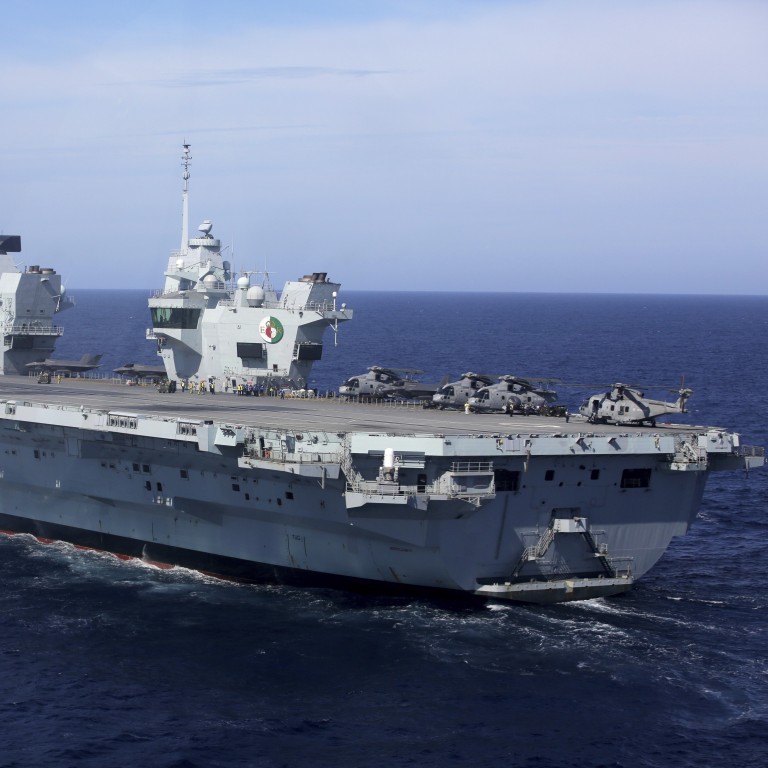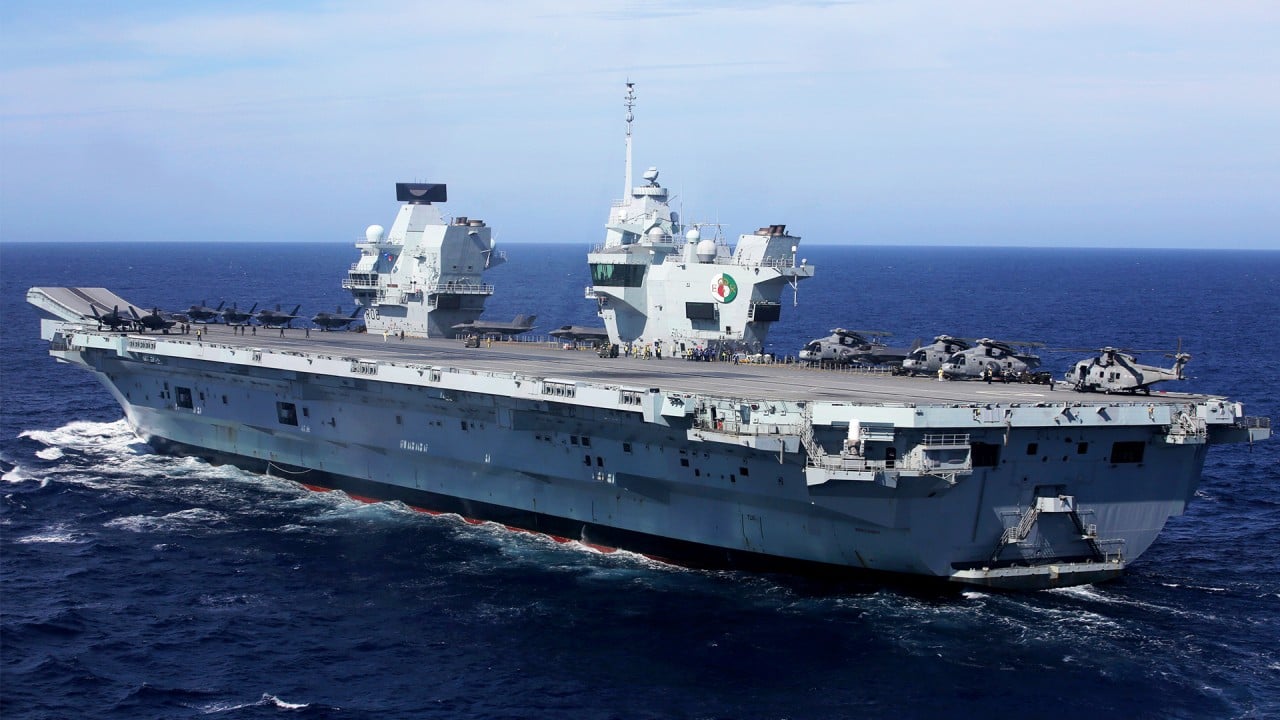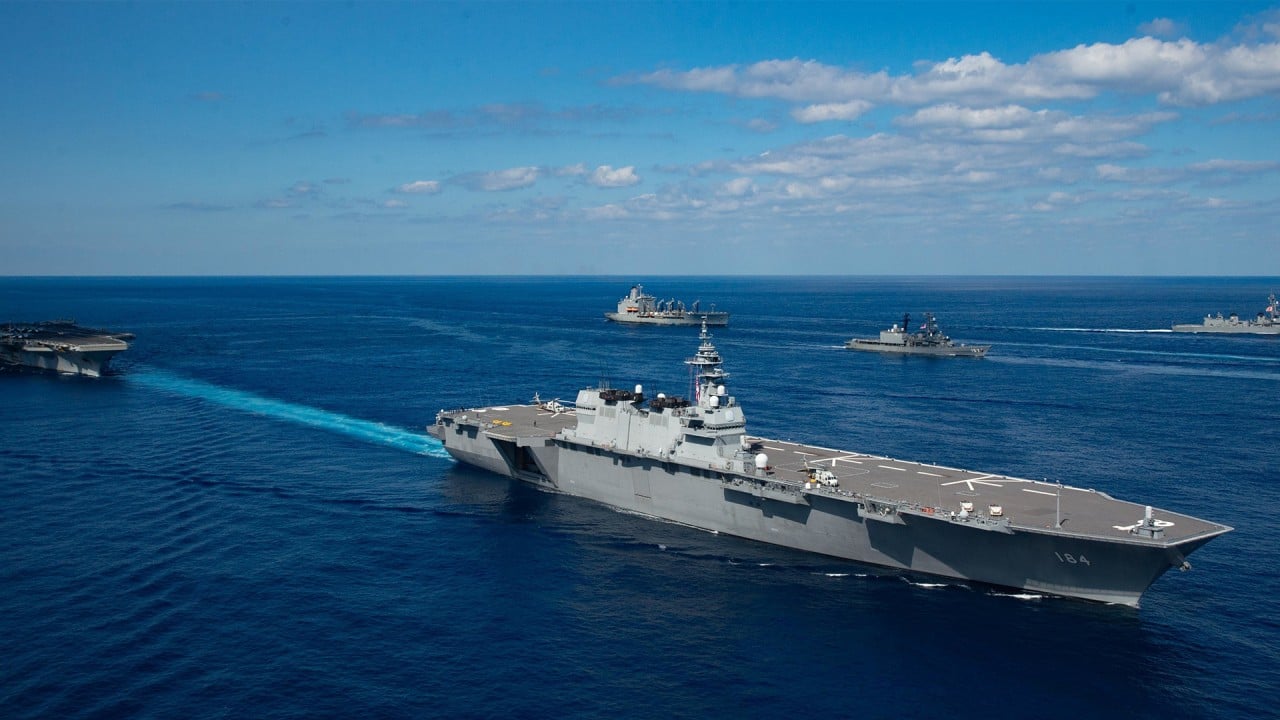
British warships supporting US in Asia-Pacific ‘could expand Five Eyes’ remit’
- Sending the two additional warships could put China under pressure and help share the US’ burden in the region, Chinese observers say
- Five Eyes alliance could be broadening focus from sharing intelligence to military operations, according to naval expert
Beijing-based naval expert Li Jie said the presence of the two additional British warships in Asian waters would not significantly alter the balance in the Asia-Pacific but might put China under political pressure from international public opinion.
“This is also a risky political move taken by the Five Eyes, which used to focus on sharing intelligence and is now dragging in Japan and expanding collaboration to joint military operations and coordination,” Li said, referring to the US-led grouping, also comprising Britain, Canada, New Zealand and Australia.

02:26
Britain’s new aircraft carrier joins Nato exercises ahead of Indo-Pacific voyage
“Britain is one of the five powers in the United Nations Security Council, so it means two Security Council members are joining to counter a rising China, and it may cripple Beijing’s political influence in the international community,” Li said.
The planned future deployment of the two warships was revealed in a joint announcement by Britain and Japan when British Defence Secretary Ben Wallace met his counterpart Nobuo Kishi in Tokyo on Tuesday.
The announcement came with British aircraft carrier the HMS Queen Elizabeth and its escort ships expected to sail to Japan in September via the East China and South China seas, where China is vying for influence with Japan and the United States.
According to the British embassy in Tokyo, the British warships will not have a permanent base, but the carrier, which is carrying F-35B stealth jets on its maiden voyage, will dock at Yokosuka – home of Japan’s fleet command and the USS Ronald Reagan, the only forward-deployed US aircraft carrier.
Chinese foreign ministry spokesman Zhao Lijian said in Beijing on Wednesday that Beijing respected all countries’ enjoyment of freedom of navigation in waters around China under international law.
“But [China] firmly opposes any countries undermining the country’s sovereignty and the peace and stability of the region by advocating the use of force,” Zhao said.

02:14
Japan-US hold joint military drills including cyberwarfare training as concerns about China grow
Zhou Chenming, a researcher from the Yuan Wang military science and technology institute in Beijing, said the combat capability of the Queen Elizabeth carrier would not cause a direct military threat in the region to China’s People’s Liberation Army, but any potential future joint naval operations between US, British and Japanese forces could allow Washington to share some of the burden and cost of its long-term efforts to counter the Chinese military.
“London’s promise [of the two warships’ deployment] suggested the US military was facing a shortage of troops and warships in the region,” Zhou said, adding that the US Navy had its America Amphibious Ready Group stationed in the region, with its resident USS Ronald Reagan aircraft carrier strike group being sent to the Middle East for troop withdrawal from Afghanistan.
Britain’s military commitment showed it wanted to remind Asian countries that it could have some influence in the region, said Cheung Mong, an associate professor with the School of International Liberal Studies at Waseda University in Japan.

